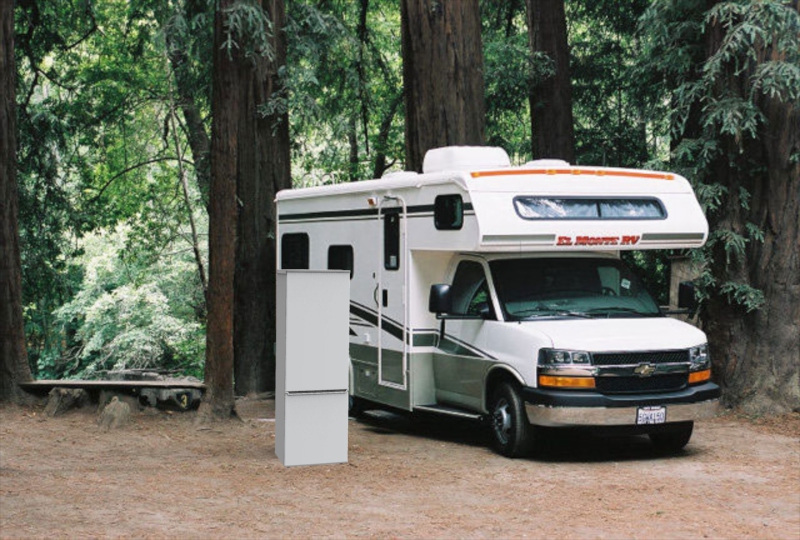
So what is the difference between a traditional RV refrigerator when compared to a solar-powered DC refrigerator?
I’m glad you asked. An RV refrigerator, for all intents and purposes, is essentially the same as in terms of function as a regular household fridge or a DC solar refrigerator. The main difference is in how the products operate. An RV refrigerator uses absorption as the main method of cooling. That is to say, there isn’t a compressor, which you would find in a regular or solar refrigerator. It works by using an absorber and an evaporator as a method of cooling. It’s decent for campers and RV’s because they can be easily outfitted and it’s in between a regular fridge and a solar fridge in terms of efficiency.
However, it isn’t always sunshine and unicorns. The biggest problem an RV refrigerator will have is that the materials used for cooling will sit in the coils when it’s not in prolonged use. Unfortunately, when that happens, the sediments in the cooling materials will settle and harden, and over time, you’ll be left with a non-functioning RV refrigerator.
This is just a problem that regular compressor driven refrigerators don’t encounter. This is mainly because regular AC-driven refrigerators and DC refrigerator models never really turn off. Even if you end up turning them off, they have a much longer shelf life because the Freon gases (coolant that is used in every compressor-driven refrigerator and air conditioner) don’t settle and harden the way the sediments in absorption-based fridges do.
That’s pretty much the 30,000ft overview. Absorption-based RV refrigerators are good, but they tend to have a high failure rate because of poor maintenance. A DC solar refrigerator is poised to be a much longer lasting and sustainable method for the future. It’s really a set it and forget it solution. It doesn’t matter if you’re in a camper or RV, the next time you plan out mobile outing, consider a solar refrigerator.
